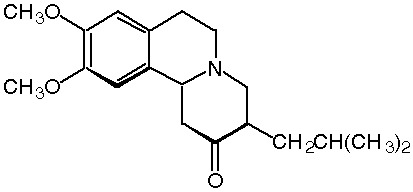MIAMI BEACH, Fla. -- Findings Presented at 57th Annual Meeting of the American Academy of Neurology
Clinical study investigators concluded that tetrabenazine was an effective and well-tolerated treatment for severe hyperkinetic movement disorders among children who are resistant to other medications, according to new data presented today at the 57th Annual Meeting of the American Academy of Neurology in Miami Beach.
"This is one of the largest reported studies of children treated with tetrabenazine," said Steven J. Frucht, MD, Assistant Professor of Neurology, Neurological Institute of New York, Columbia University Medical, Center for Parkinson's Disease and Other Movement Disorders, and lead investigator of the study. "We are encouraged by the fact that nearly three quarters of children treated with tetrabenazine experienced a reduction in their involuntary movements."
Study Design and Results
Over the course of 18 years, 30 children aged 18 years and younger were treated with tetrabenazine at Columbia University Medical Center for a variety of hyperkinetic movement disorders, including chorea, dystonia, and Tourette Syndrome or tics. The study was approved by the medical center's institutional review board, and neither the study nor the investigators were supported by Prestwick.
A retrospective chart review was conducted to assess the efficacy and tolerability of tetrabenazine among these patient populations. Twenty-eight patients (93%) had tried other medications without adequate relief prior to being placed on tetrabenazine. On average, patients were treated with a total dose of 150.9 mg/d (4.9 mg/kg/d) for 1.3 years.
Twenty-two of the 30 patients (73%) experienced a reduction in movements (as assessed by the examining physician) after starting tetrabenazine. Sixteen patients continued tetrabenazine along with at least one other medication to control movements, while movements were sufficiently controlled with tetrabenazine alone in six patients. Side effects, which were ameliorated with a reduction in dose, were experienced in nineteen patients (63%), including sedation (30%), behavioral changes (20%), depression (10%), worsening of movements (6%), nausea (3%) and parkinsonism (3%). Nine patients (30%) discontinued tetrabenazine due to behavior changes (3), sedation (3), worsening or lack of improvement in movements (2) and major depression (1).
"The results of this pediatric study support earlier findings in adults that suggest tetrabenazine may be an effective and well-tolerated treatment option for severe pediatric hyperkinetic movement disorders," said Dr. Frucht. "Similarly, side effects were typically dose-dependent, and we did not observe tardive dyskinesia in our patient population."
Tetrabenazine
Tetrabenazine is available in some European markets and Australia as XENAZINE(R) and in Canada as NITOMAN(R) for the treatment of hyperkinetic movement disorders. Tetrabenazine is not FDA-approved for marketing in the United States. Side effects can include drowsiness, insomnia, akathisia and depression.
Prestwick Pharmaceuticals
Prestwick Pharmaceuticals, Inc. is a product-focused specialty pharmaceutical company engaged in the development and commercialization of drugs with high commercial potential and relatively low development risk that target chronic diseases of the central nervous system. To date, the company has in-licensed rights relating to product candidates in clinical development for the treatment of CNS disorders, including chorea associated with Huntington's Disease, Parkinson's disease and schizophrenia.
In October 2004, Prestwick announced the results of its Phase III study of tetrabenazine for chorea associated with Huntington's Disease. The study was conducted in adults only. The company anticipates filing a New Drug Application (NDA) for tetrabenazine with the U.S. Food and Drug Administration (FDA) in the near future. Prestwick was granted both fast track and orphan designation by the FDA for tetrabenazine.
COPYRIGHT 2005 Business Wire
COPYRIGHT 2005 Gale Group



